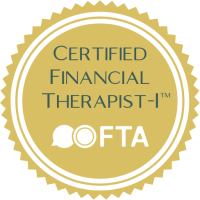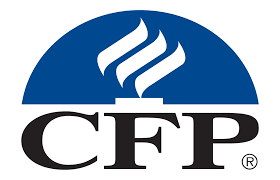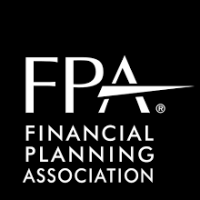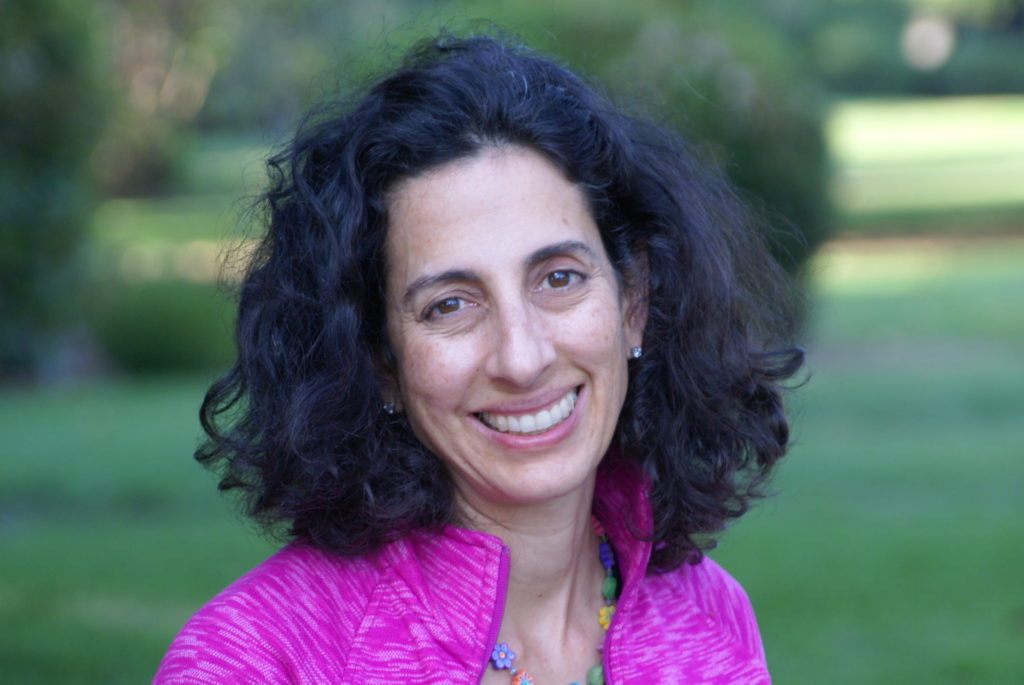Helping you get to the root of your relationship with money so you can branch out and achieve your goals
Elana Feinsmith
- Certified Financial Therapist-I™
- Certified Financial Planner® CFP®
- Certificate in Personal Financial Planning from UC Berkeley Extension, with Distinction
- Graduate Certificate in Financial Life Planning from Golden Gate University Graduate School of Business
- Trained in Internal Family Systems -IFS for Coaches
- Former Senior Investment Specialist at Charles Schwab
- Graduate of Cornell University
- Member of the Executive Circle with Dr. Brad Klontz and Dr. Ted Klontz, experts in money psychology
- Member of Financial Therapy Association
- Member of Financial Coaches Network
- Mom, wife, daughter, friend, volunteer, musical theater enthusiast, dancer, traveler
- See my LinkedIn profile and My Personal Story below
Certifications and Memberships

Certified Financial Therapist-I™

Certified Financial Planner since 2000

Member of Financial Therapy Association

Member of Financial Planning Association

Certificate Financial Life Planning from Golden Gate University 2019

Certificate in Personal Financial Planning from UC Berkeley Extension
My Personal Story
As a child I dealt with a lack of money by gaining control of my own money. As soon as I turned 14, I started babysitting as much as I could. I took the money I earned and invested it in mutual funds that over the years had a steady return. I felt that having money gave me choices I did not have if I needed to rely on others. After high school, I went to Denmark on a Rotary Exchange scholarship. I returned home and went to Cornell University because my father was a professor and I got a significant discount. Even with the discount, I worked multiple jobs to pay for my college expenses.
In my senior year at Cornell, I received a scholarship to study in Israel, where I decided to create what I now know is called a money policy to live by. A money policy is a simple plan of what percentages of your money you’ll use for what areas. For example, use 70% of income (after taxes and 401k contributions) to live on, put 20% into savings, and donate the remaining 10% to charity. I created my money policy and much to my surprise, my boyfriend who was 20 at the time and later became my husband agreed to it. Because of that monetary policy, later when things did not work out as we had planned, or when I decided to step back from my career to raise our children, we had money to live on and we have been able to give money to causes we believe in. I thought being good at personal finances was something that everyone naturally did. But a career counselor helped me realize that I actually have a very special gift in this area. I embraced that feedback by earning a Certificate in Personal Financial Planning from UC Berkeley then working at Charles Schwab where I completed the requirements to earn my CFP® designation.
My grandma used to say “People plan and G-d laughs.” There were many things in my life I did not plan for but which I have overcome, including my father’s decline and passing from Parkinson’s disease, as well as other family health issues. Over the years I have felt a disappointment around not being able to do it all, having a power career, while at the same time being a mom in the way my children needed, leading meaningful volunteer projects, and taking care of our home. Traditional financial professional jobs did not call to me since they cut out the emotion and deal only with the numbers. So I kept searching for what to do with my knowledge and experience as a CFP.
In 2018, I was blessed to meet Dr. Dave Yeske, the chair of the Golden Gate University Financial Planning Program. He told me about Financial Life Planning for Certified Financial Planners®, which helps people confront their interior (emotional and psychological) relationship to money. Dr. Dave Yeske inspired me to spend a year studying Financial Life Planning at Golden Gate University, learning from the country’s top professors in this emerging field. After I graduated, I wanted to keep learning, so I joined the Financial Therapy Association as well as the Executive Circle, which is run by two of the top people in the field of Financial Psychology, Dr.’s Brad and Ted Klontz. To make myself a stronger teacher, I completed the Columbia University Financial Planning Teaching Seminar. Last summer I learned Internal Family Systems -IFS can improve clients’ emotional and mental well-being so I completed the IFS Institute’s course in IFS for coaches.
I am passionate about financial literacy and legacy planning. During my studies I realized that my grandparents, who were immigrants to the US and escaped religious persecution, and who somehow found jobs during the Great Depression, had an impact on my relationship with money. My maternal grandma was a saver and she maintained a tight budget by limiting her groceries and household spending to a set amount of cash she put in a special envelope each week. My paternal Nana was more of a spender, taking delight in buying new things. My philosophy with money is a mingling of both and I often live by the concept of “Cost per Use” which means that expensive, quality items that you can use many times can be good investments.
This is my story, and I want to hear yours. I want to find out what you dream of, how your grandparents and others from your childhood influence your thoughts around money, and how I can help you define and achieve your financial goals.
In my senior year at Cornell, I received a scholarship to study in Israel, where I decided to create what I now know is called a money policy to live by. A money policy is a simple plan of what percentages of your money you’ll use for what areas. For example, use 70% of income (after taxes and 401k contributions) to live on, put 20% into savings, and donate the remaining 10% to charity. I created my money policy and much to my surprise, my boyfriend who was 20 at the time and later became my husband agreed to it. Because of that monetary policy, later when things did not work out as we had planned, or when I decided to step back from my career to raise our children, we had money to live on and we have been able to give money to causes we believe in. I thought being good at personal finances was something that everyone naturally did. But a career counselor helped me realize that I actually have a very special gift in this area. I embraced that feedback by earning a Certificate in Personal Financial Planning from UC Berkeley then working at Charles Schwab where I completed the requirements to earn my CFP® designation.
My grandma used to say “People plan and G-d laughs.” There were many things in my life I did not plan for but which I have overcome, including my father’s decline and passing from Parkinson’s disease, as well as other family health issues. Over the years I have felt a disappointment around not being able to do it all, having a power career, while at the same time being a mom in the way my children needed, leading meaningful volunteer projects, and taking care of our home. Traditional financial professional jobs did not call to me since they cut out the emotion and deal only with the numbers. So I kept searching for what to do with my knowledge and experience as a CFP.
In 2018, I was blessed to meet Dr. Dave Yeske, the chair of the Golden Gate University Financial Planning Program. He told me about Financial Life Planning for Certified Financial Planners®, which helps people confront their interior (emotional and psychological) relationship to money. Dr. Dave Yeske inspired me to spend a year studying Financial Life Planning at Golden Gate University, learning from the country’s top professors in this emerging field. After I graduated, I wanted to keep learning, so I joined the Financial Therapy Association as well as the Executive Circle, which is run by two of the top people in the field of Financial Psychology, Dr.’s Brad and Ted Klontz. To make myself a stronger teacher, I completed the Columbia University Financial Planning Teaching Seminar. Last summer I learned Internal Family Systems -IFS can improve clients’ emotional and mental well-being so I completed the IFS Institute’s course in IFS for coaches.
I am passionate about financial literacy and legacy planning. During my studies I realized that my grandparents, who were immigrants to the US and escaped religious persecution, and who somehow found jobs during the Great Depression, had an impact on my relationship with money. My maternal grandma was a saver and she maintained a tight budget by limiting her groceries and household spending to a set amount of cash she put in a special envelope each week. My paternal Nana was more of a spender, taking delight in buying new things. My philosophy with money is a mingling of both and I often live by the concept of “Cost per Use” which means that expensive, quality items that you can use many times can be good investments.
This is my story, and I want to hear yours. I want to find out what you dream of, how your grandparents and others from your childhood influence your thoughts around money, and how I can help you define and achieve your financial goals.

